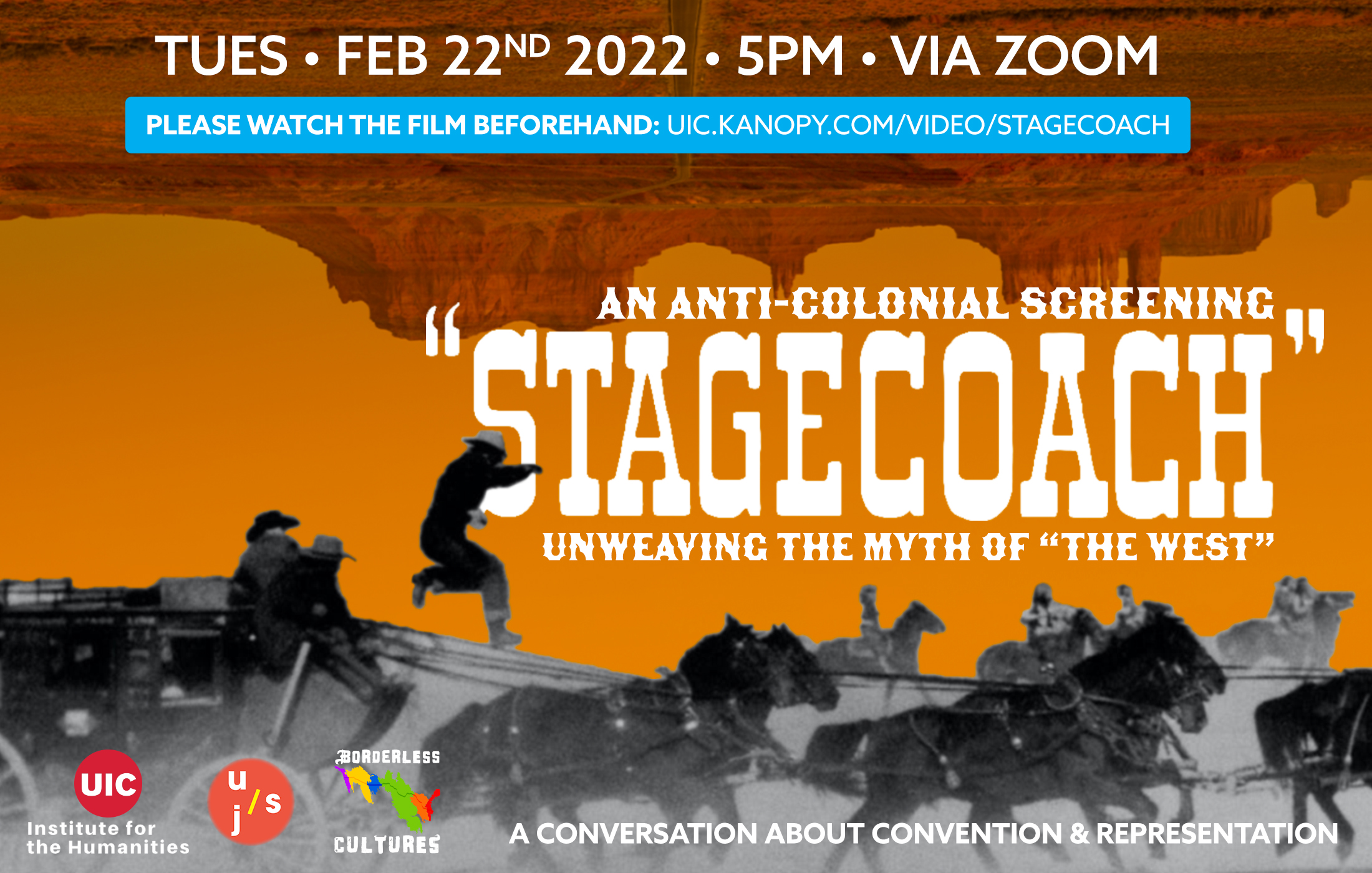CONTENT WARNING:
Cinema Conventions as Violence
Cinema Conventions as Violence
A screening project
Content Warning is an ongoing screening project that aims to disrupt the hierarchies of the screen. This project contends with the responsibilities and implications of screening films with skewed spatial and racialized representations by re-contextualizing moving image arts in a longer history of imaging technologies and visual literacy.
Thinking of conventions as visual shortcuts, the goal is to expose the ways in which we have been trained to watch and analyze films. By reading film history and conventions against the grain, this project aims develop new ways of seeing and to collapse the illusion of continuity. At a moment of cultural reckoning in regards to these issues, re-articulating film’s future possible forms is an urgent task.
Past Programs
Teasers of Empire
1930s Action-Adventure Trailers and the Spectacle of ImperialismMay 26, 2022

(Various artists; 1931 - 1940; 35mm & digital, ~32 min.)
Teasers of Empire interweaves a selection of fifteen 35mm trailers from the Academy Film Archive with commentary by guest scholars to examine the connections between the Action-Adventure genre and the history of imperialism. Early sound films can help elucidate how Hollywood filmmaking practices and genre tropes developed in conjunction with dominant colonial narratives and audience tastes. Despite the technical mastery displayed by these films, screening them today presents a challenge given that many of them contain harmful stereotypes about minoritized peoples.
Examining 1930s Action-Adventure trailers with this critical lens offers us an opportunity to study how the genre was shaped by borrowed colonial artistic and literary conventions that naturalized discourses of empire, conquest, and modernity, without reactivating the violence of screening the films in their entirety.
The program was structured around three sections, with guest scholars responding to the trailers in each. Ariel Rogers, Associate Professor in the Department of Radio/Television/Film at Northwestern respond to Stealing “Paradise.” Rochona Majumdar, Associate Professor in the Department of South Asian Languages and Civilizations and the Department of Cinema and Media Studies at the University of Chicago responded to Outpost Under Attack. And Emily Lyon, Northwestern PhD Candidate in History responded to US History as Entertainment. Afterwards, Emmanuel Ramos-Barajas moderated a conversation with all three guests.
Unweaving the Myth of “The West:”
An Anti-Colonial Screening of John Ford’s Stagecoach (1939)︎ WATCH
February 22, 2022
(John Ford, 1939, 96 min.)
The Western has been described as the “great American form,” and seemingly the most purely “American” genre. While the Western’s popularity has waned in recent decades, the conventions and tropes it generated—most visible today in action-adventure and superhero films—continue to influence our expectations for contemporary storytelling. Despite its significant impact on the global popular imaginary, most conversations on the Western do not contemplate its insidious properties: namely, the ways in which these romanticized plots continue to shape our understanding of history and to normalize hierarchies in our social and spatial relations.
This screening of John Ford’s Stagecoach was followed by a conversation between UIC History Professor Jeffrey Sklansky and Art History Assistant Professor Emmanuel Ortega to discuss the Western’s entanglement of art, history, and politics—focusing particularly on the racialized representation and cinematic conventions of this early formative Western. Moderated by Emmanuel Ramos-Barajas.
